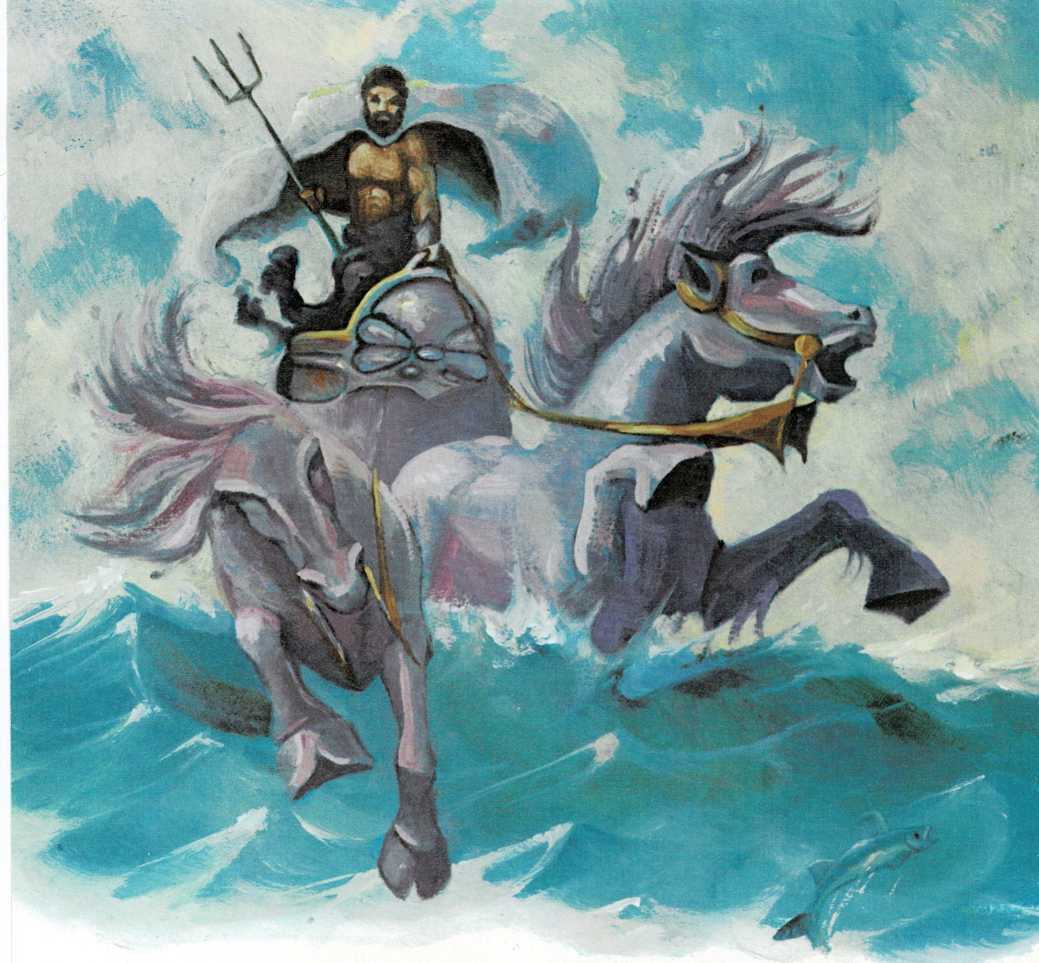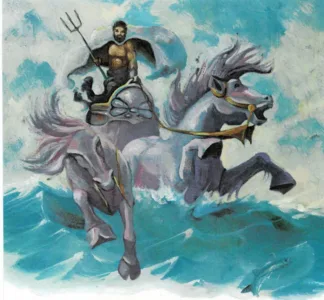Sea gods
Most people of long ago believed that the sea was ruled by a great god
or spirit. The sailors of many ancient lands worshipped sea gods and
prayed to them for protection.
The sea god of the ancient Greeks was named Poseidon (puh SY duhn). The
Greeks believed he lived at the bottom of the Aegean Sea, in a
magnificent golden palace.
When Poseidon left his palace to travel over the sea, he rode in a
bronze chariot drawn by horses with golden manes. When he was in a good
mood, the water parted for his chariot and the sea was calm. But if he
were angry, his journey would cause a storm to rage over the sea.
The Romans adopted their sea god from the Greeks. But in Roman myths he
is called Neptune [(nehp]{.smallcaps} toon). Like Poseidon, Neptune was
also the god of horses and earthquakes.
The people of ancient Libya, on the coast of North Africa, also had a
sea god. Their god of the sea had the body of a man from the waist up
and the body of a fish from the waist down. For some reason, the ancient
Greeks borrowed this Libyan god and said he was the son of Poseidon.
They called him Triton [(try]{.smallcaps} tuhn). The idea of mermaids
and mermen, creatures that are half human and half fish, probably
started with Triton.
The sea god of the early people of Ireland was Manannan. Like Poseidon,
Manannan had the shape of a human. He wore a cloak that had all the
colors of the sea. He owned a horse that could run on land or water. And
he had a boat named Ocean-Sweeper, which

obeyed his thoughts and would go wherever he told it to. The people of
Ireland called the white-tipped ocean waves, \”the horses of Manannan.”
A little island in the Irish Sea, halfway between Ireland and England,
was thought to be Manannan’s throne. Today, that island is known as the
Isle of Man. It is named after the ancient Irish god of the sea.

